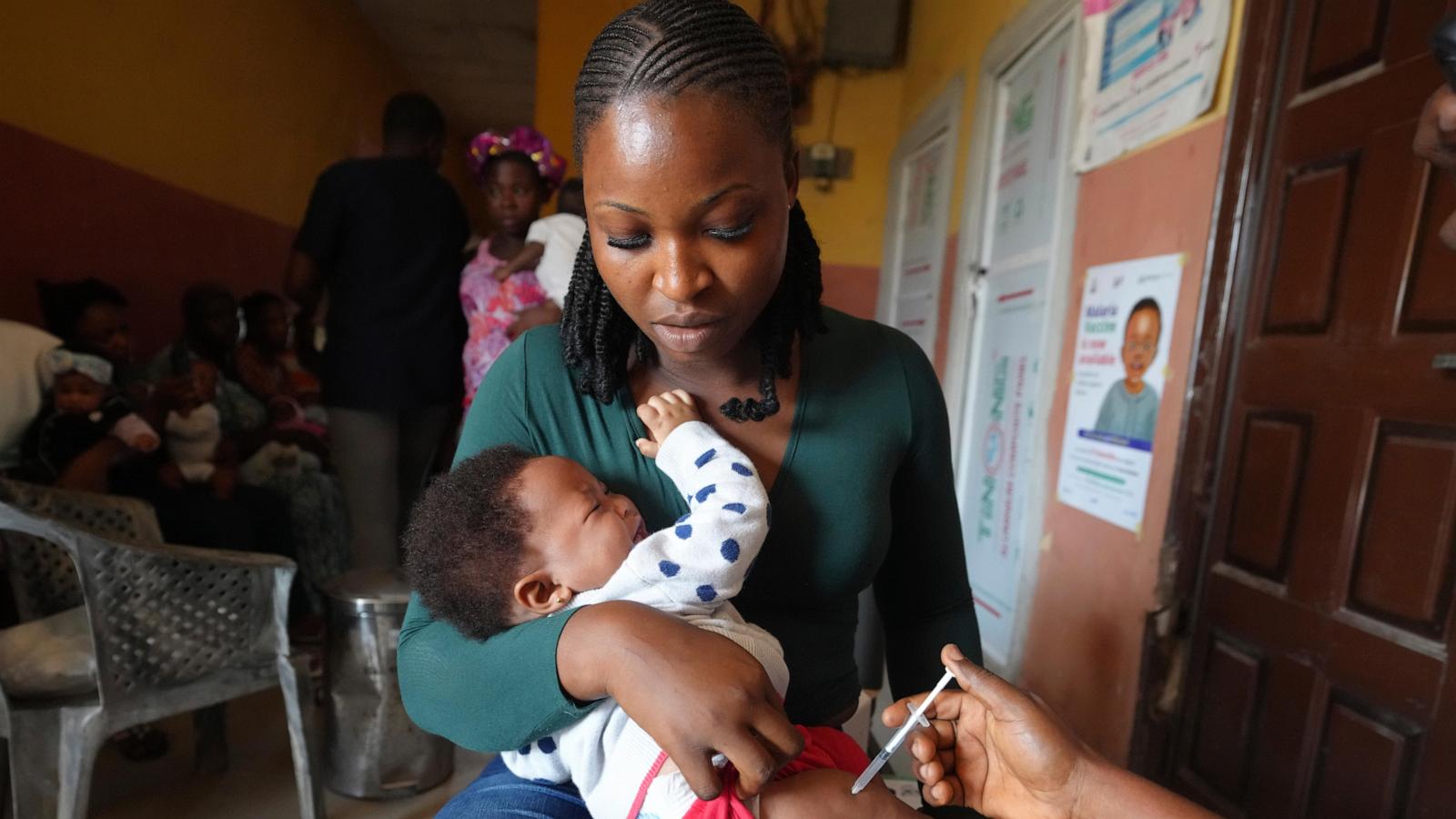Is Malaria Vaccine the Ultimate Weapon Against this Killer Disease? Millions of lives are at stake, but hope has arrived! This article dives into the groundbreaking malaria vaccine campaign, examining its effectiveness, challenges, and impact on Nigeria's relentless battle against this deadly mosquito-borne illness. Get ready to be amazed by the incredible science and the human stories behind the fight.
A monumental step in the fight against malaria
Nigeria, a nation grappling with an immense malaria burden, has embarked on a revolutionary campaign: the introduction of a groundbreaking malaria vaccine. This monumental step marks a turning point in the relentless fight to curb this disease that disproportionately affects young children and pregnant women. The vaccine, developed by Oxford University, promises more than 75% effectiveness in preventing severe malaria and death during the first year. Even more exciting? It provides extended protection into the following year with a booster. The rollout began in the severely affected Bayelsa state, reaching regions where access to medical services remains severely limited. This comprehensive vaccination drive is set to transform the lives of millions.
Challenges Remain Despite Vaccine Breakthrough
While the arrival of the vaccine signals an incredible win in the battle against malaria, challenges persist. Nigeria's massive population of over 210 million, coupled with its diverse climate, pose considerable logistical hurdles to vaccination distribution and outreach. Additionally, deep-rooted poverty and substandard sanitation create a perfect breeding ground for malaria-carrying mosquitos, and these issues continue to fuel its high rate of transmission. Health experts emphasize the continued importance of bed nets and insecticide spraying, as these proven prevention methods are even more critical during vaccine rollout and beyond. Funding gaps and weakened health systems across the nation further exacerbate this fight.
Understanding the Malaria Threat
Malaria, caused by parasitic protozoans transmitted through the bite of infected female Anopheles mosquitoes, is a pervasive global health threat. Sub-Saharan Africa bears the brunt of the malaria burden, and according to the World Health Organization, a staggering 263 million cases occurred last year, tragically leading to almost 600,000 deaths. The significant majority of these victims are children under 5. These numbers demonstrate the critical need for comprehensive approaches like the novel malaria vaccine coupled with community education to tackle this killer disease effectively.
Hope Amidst the Despair
Despite the daunting numbers, it is vital to celebrate recent progress in battling this age-old disease. The same WHO report revealed that African nations, since 2015, managed a remarkable 16% reduction in malaria deaths. Such strides inspire hope, emphasizing the potential for real progress when communities, organizations, and health professionals come together to act swiftly and decisively.
Nigeria's Comprehensive Strategy
Nigeria's approach to tackling malaria is comprehensive. The current initiative integrates the use of vaccines with well-established interventions such as widespread use of bed nets, insecticide sprays, and enhanced surveillance, resulting in significant decreases in malaria incidence and mortality over the past few years. However, these efforts continue to struggle for enough funding from the country's government. As part of their multi-faceted campaign, health professionals are conducting educational outreach programs within the community to ensure vaccine acceptance. By promoting the use of preventive methods while tackling challenges hindering adequate treatment, Nigeria stands at the forefront of global efforts in malaria elimination.
Addressing Vaccine Hesitancy
One of the critical challenges faced in malaria vaccination campaigns is addressing vaccine hesitancy among parents. In certain communities, there are long-standing cultural beliefs or a lack of understanding surrounding vaccines that create apprehension. Therefore, widespread education on the vaccine’s benefits and safety is crucial, and programs are needed that go above and beyond usual health outreach methods to effectively address and mitigate any existing misunderstandings. Addressing the vaccine-hesitant and informing communities about vaccine efficacy is critical in assuring mass participation in malaria vaccine campaigns.
The Power of Collaboration
The malaria vaccine’s introduction in Nigeria underscores the critical role of international collaboration in combatting global health challenges. With combined efforts by researchers, health workers, governments, and global health organizations, more innovations are brought to life, bringing hope and real change to regions battling mosquito-borne illnesses.
Looking Ahead
The ongoing vaccine campaign is one of hope for a future free from the devastating impact of malaria. However, long-term success hinges on sustained efforts across various levels—from sustained funding for research to community mobilization and tackling persistent challenges. It's not merely about the vaccine itself; it's about creating a system that enables widespread and equitable access to prevention measures and ensures every Nigerian has access to these health resources.
Take Away Points:
- The introduction of the malaria vaccine is a monumental leap in the fight against the disease in Nigeria and other malaria-prone nations.
- Despite vaccine breakthroughs, challenges such as insufficient funding, inadequate sanitation, and resistance to drugs continue to hinder efforts.
- Community outreach is essential to raise awareness and encourage uptake of both vaccination and existing prevention strategies like bed nets and insecticide use.
- Sustained collaborative efforts and financial investment are necessary for long-term success in eradicating this killer disease.
- It is encouraging to see the steady decline in mortality since 2015.




